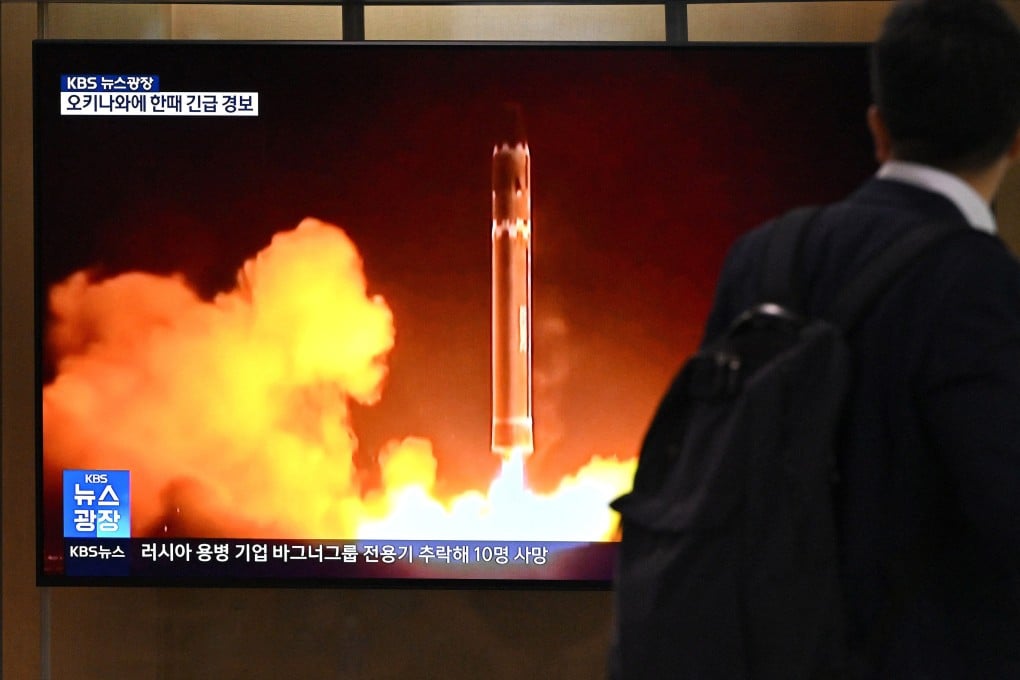Advertisement
North Korea spy satellite launch ends in failure, again
- State media said the first two stages of the launch went as planned, but there was an error in the emergency blasting system during the third-stage
- The firing of the projectile comes after a failed launch in May, when a military reconnaissance satellite plunged into the sea minutes after take-off
3-MIN READ3-MIN
1

North Korea’s latest attempt to put a spy satellite into orbit has ended in failure, state media said on Thursday, just months after Pyongyang’s first launch crashed into the ocean soon after blast-off.
North Korean leader Kim Jong-un has made the development of an eye in the sky a top regime priority, with his nuclear-armed country claiming it is a necessary counterbalance to growing US military activity in the region.
North Korea’s National Aerospace Development Administration “conducted the second launch of reconnaissance satellite Malligyong-1 aboard the new-type carrier rocket Chollima-1 at the Sohae Satellite Launching Ground in Cholsan County of North Phyongan Province at dawn of August 24,” state media said.
The launch failed due to an error in the emergency blasting system during the third-stage flight
“The flights of the first and second stages of the rocket were normal, but the launch failed due to an error in the emergency blasting system during the third-stage flight,” the report in the official Korean Central News Agency added.
Advertisement
It claimed “the cause of the relevant accident is not a big issue” and vowed to conduct a third launch in October after probing the problem and taking measures to fix it.
South Korea’s Joint Chiefs of Staff said it detected the launch around 3:50am local time of “what North Korea claims is a space launch vehicle,” saying the projectile had “traversed the international airspace” over the Yellow Sea.
Advertisement
“Our military is maintaining a full readiness posture and closely coordinated with the United States, while simultaneously elevating our security posture,” the JCS added.
Advertisement
Select Voice
Select Speed
1.00x